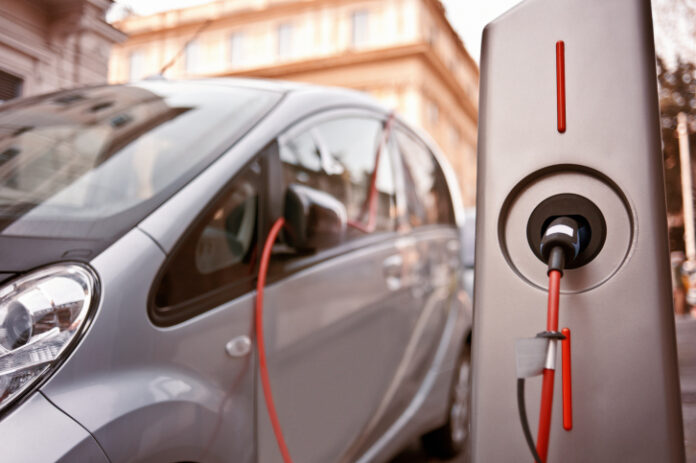(The Center Square) – Only about 13,545 electric vehicles (EVs) are registered statewide, but Michigan Gov. Gretchen Whitmer and some Republican lawmakers want to spend more than a billion dollars of taxpayer money to help the 0.22% of all vehicles on the road—or 13,545 registered EVs.
Hillsdale College Economics Professor Gary Wolfram said taxpayers should question why the entire state subsidizes EVs, mainly driven by wealthier people.
“Electric vehicles are very expensive relative to regular vehicles, and they’re a very small portion of the total of vehicles out there,” Wolfram said in a phone interview. “And so if you’re out there building EV charging stations, who’s benefiting from that? The people who are wealthier.”
Statewide, there are 5.8 million gas vehicles, 13,545 EVs, and 105,651 hybrid vehicles registered. But instead of private companies building charging stations similar to gas stations, taxpayers are picking up the tab for EV infrastructure and research currently only benefiting a few Michiganders.
“One of the aspects of building out these recharging stations: do we want to take regular taxpayer money and do something that provides a benefit to people who are essentially the wealthier group? Low-income people don’t buy EVs,” Wolfram said.
Whitmer’s 2023 budget aims to spend $50 million to subsidize new EV sales or a $500 rebate for at-home charging equipment for new or used EVs.
Wolfram questioned whether it would be cheaper to limit carbon emissions or incentivize a solution to remove carbon from the atmosphere. Even if the United States cut carbon emissions, other countries might not, he said.
“Realistically, if you’re in the state of Michigan, are you changing the amount of carbon emissions relative to the worldwide production of carbon emissions that you will have any effect on global warming? Realistically, probably not,” he said.
For example, Investopedia says China produces more C02 emissions than the rest of the world combined and emitted 9.9 billion metric tons in 2019.
But Michigan has doubled down on on giving taxpayer money to EV and tech companies.
Michigan promised General Motors (GM) $824 million in exchange for a $6.5 billion investment estimated to provide 4,000 jobs by 2024 with taxpayers footing about $205,000 per job created. The state gave $35 million to Ford Motor Co. and $750,000 to Rivian for EVs—which is financially backed to Amazon, the third-largest U.S. company.
Michigan has a history of subsidizing tech companies with millions of taxpayer dollars.
For example, in 2010, the federal government gave A123, a battery-maker with a factory in Ann Arbor that soon failed, $249 million, and the state of Michigan pitched in another $141 million in tax breaks and subsidies.
Michigan spent $1.9 million to build 1 mile of road meant to charge EVs, whether parked or driving, at a cost that could have repaired 792 miles of roadway, assuming the money is fungible.
It’s a state holiday, so the Michigan Department of Transportation (MDOT) didn’t respond to a request for comment. However, in an MDOT podcast, Director of Communications Jeff Cranson said Michigan heavily investing in automated vehicles made the state “a national leader” in the field.
Not all lawmakers supported subsidizing EVs.
Rep. Steve Johnson, R-Wayland, described GM’s $824 million subsidy as “big business getting into bed with big government.” He added: “We’re actually giving from the poor to the wealthy.”
At the time, Rep. Abraham Aiyash, D-Detroit, tweeted: “ ICYMI: GM will be getting nearly a BILLION dollars in taxpayer money for jobs that will likely pay only $36k a year with no guarantee of a union or benefits. The art of the deal.”
Originally published by The Center Square. Republished with permission.












[…] post Economist: Why Are All Michigan Taxpayers Subsidizing EVs? appeared first on Heartland Daily […]